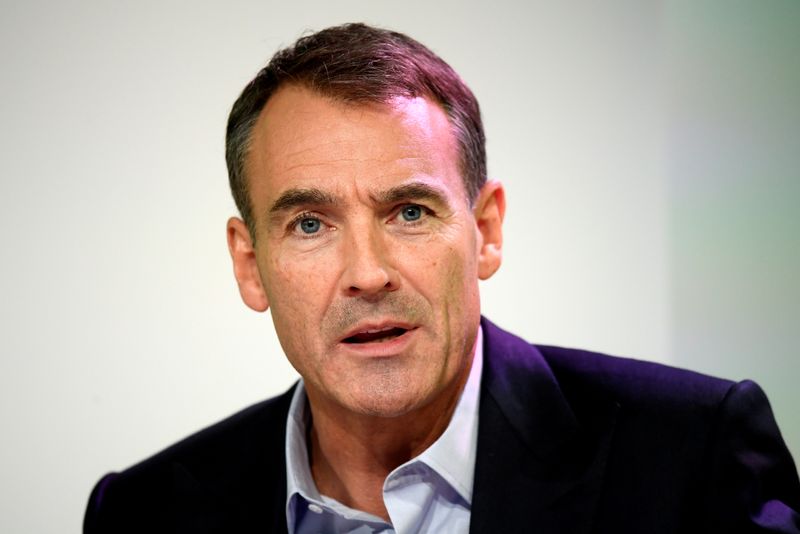By Ron Bousso
LONDON (Reuters) - The world's top oil and gas companies locked in cheap borrowing rates to raise a record amount of debt in the second quarter of 2020 and boost cash reserves as a buffer against a collapse in revenues because of COVID-19.
The dash for debt piles pressure on company balance sheets and the issue is particularly acute for BP (L:BP) and Royal Dutch Shell (L:RDSa). Already burdened by high levels of borrowing, they also face the disruption of a major shift towards renewables and low-carbon.
The world's top seven energy firms - BP, Shell, Exxon Mobil (N:XOM), Chevron (N:CVX), Equinor (OL:EQNR), Total (PA:TOTF) and Eni (MI:ENI) - raised $60 billion in debt in the quarter, nearly half of the $132 billion in oil and gas sector borrowing over the period, Refinitiv data showed.
BP, which had $78.5 billion in debt by the end of March, raised the most at nearly $16 billion, using for the first time hybrid bonds that place less strain on the balance sheet as the principal is not required to be repaid. (Graphic: The great debt rush, https://fingfx.thomsonreuters.com/gfx/editorcharts/oakpeajrkpr/eikon.png)
Oil majors' revenues are expected to drop sharply in the second quarter after movement restrictions to limit the spread of the novel coronavirus that causes COVID-19 led to a steep drop in fuel consumption.
Benchmark Brent crude (LCOc1) averaged below $30 a barrel in the second quarter when it hit the lowest in two decades.
Exxon, the largest U.S. oil company, is expected to report a second consecutive quarterly loss, while Shell said its fuel sales in the second quarter fell by around 40%.
COVID RECOVERY?
The coronavirus crisis has battered oil company shares, which underperformed the broader indexes, as concerns over their ability to withstand the short-term shock added to uncertainty linked to the world's shift to renewable power.
The share price drop dealt a double blow to the companies as the ratio of their debt to total market size, known as gearing and an indicator of financial health, is set to rise.
Higher gearing can impact a company's credit ratings and increase its cost of borrowing.
Jason Kenney, analyst at Santander (MC:SAN), said oil majors were likely to see debt levels spike in 2020.
"This is not necessarily all bad given the current low interest rates and the chance to increase liquidity cheaply," Kenney said.
"That said, gearing and leverage levels will likely move out of target ranges before moving back to more usual levels over the coming years." (Graphic: Big Oil's rising debt IMG, https://fingfx.thomsonreuters.com/gfx/editorcharts/jbyprrbolpe/eikon.png)
The debt crisis coincides with Shell and BP's plans to shift from fossil fuels in the coming decades, details of which they are expected to unveil later this year.
BP acted to reduce its debts with the $5 billion sale of its petrochemical business in late June, helping it reach its $15 billion asset disposal target.
But the strain on its balance sheet could lead its CEO Bernard Looney to cut the company's dividend when it reports its second quarter results on Aug. 4.
Redburn analyst Stuart Joyner said he expects BP to reduce its dividend by 33%.
Although the debt levels of BP and its rivals are set to rise, the companies do not face severe distress with current oil prices of above $40 a barrel, Joyner said.

"As long as you believe that there is some sort of recovery from COVID, there is no problem with the debt," Joyner said.
